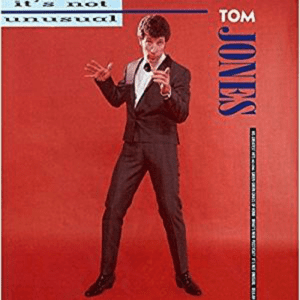
Top 5 Grammar Myths: Exposing the Truth
There comes a time in every proofreader’s life when they’re faced with the unsettling fact that some of the ‘rules’ they have always used are either misleading or downright wrong. This can be a hard pill to swallow, but it’s better to get it over and done with. So grab a cup of strong, sweet tea and brace yourself for our top five common grammar myths.
1. Never Split Infinitives
I told you it would be a bumpy ride. Please hear us out. The rule of never splitting infinitives was conceived by grammarians in the 19th century as part of an attempt to apply Latin rules to English. But this ‘rule’ is no longer used. In some cases, following this rule can even cause confusion. For instance, take the following sentence:
The librarian asked the man to kindly speak more quietly.
In this sentence, ‘kindly’ modifies ‘to speak’, meaning ‘please be more kind and speak quietly’. But if we were to avoid splitting the infinitive, we might have to write something like:
The librarian asked the man kindly to speak more quietly.
Here, it seems like ‘kindly’ refers to the librarian’s request, so the meaning has changed. In the former sentence, then, splitting the infinitive is necessary for clarity.
2. Never Start Sentences with a Conjunction
Many believe this rule about conjunctions, but no authoritative sources hold it to be true.
Of course, a text would look strange if you were to begin every sentence with a conjunction, but it is far more common to see people overusing however and additionally in an attempt to sound more academic or professional. Embracing the idea that sentences may begin with but or and can be very liberating for a proofreader! And, particularly in less formal contexts, it can be helpful as a way to improve the flow between sentences in a paragraph.
3. Never End sentences with a Preposition
Here, again, we can blame those 19th century grammarians and their attempt to apply the rules of Latin to the English language. Again, this rule is out-dated and no longer used. Ending a sentence with a preposition simply makes sense in some contexts. For instance:
We fixed the seat you like to sit on.
The ‘on’ at the end here is a preposition indicating the relationship between the seat and the act of sitting. And there’s nothing wrong with this! It make sense. And, if we try rearranging the sentence so that it does not end with a preposition, it may sound overly formal:
We fixed the seat on which you like to sit.
So both forms are ‘correct’ here and it’s simply a matter of how formal your client wants to sound. You certainly should not reconfigure a sentence just because it ends in a preposition, especially if the tone of the document is fairly light or informal.
4. Never Use Double Negatives
This rule is certainly sometimes true. However, it is frequently overstated.
Of course, things like I didn’t do nothing should always be corrected, unless they occur in dialogue in a work of fiction (in which case you should use common sense).
However, some double negatives are both widely used and perfectly correct. In fact, as a certain national treasure might sing, ‘it’s not unusual’ to use double negatives!

The ‘not unusual’ type of double negative is sometimes known as litotes (a form of ironic understatement). Probably the most famous example is ‘not bad’ being used to mean ‘good’. And while this is often a little informal, it is not incorrect.
5. Always Use the Active/Passive Voice
Some schools teach that the passive voice is ‘weak’ and should therefore be avoided. But later in life we may be told that the passive voice is better for academic writing, as it sounds more neutral and can help us avoid using the first person.
In practice, neither voice is ideal for all occasions.
The active voice is usually better because it is clearer and more concise. But the passive voice also has a role, especially if you want to foreground the object of a sentence over its subject.
The key, as a proofreader, is knowing when the active and passive voices are used effectively. This will help you make informed edits that improve a document’s readability.
Becoming A Proofreader
You can learn everything you need to know to start proofreading professionally (including how to correct errors in spelling, grammar, and punctuation) by taking our Becoming A Proofreader course. Sign up for a taster and try it for free!




